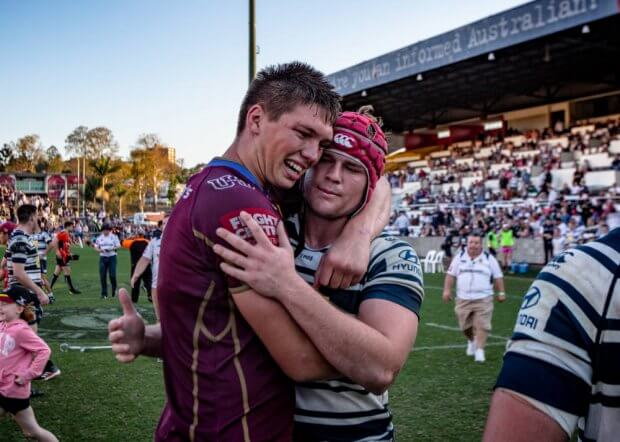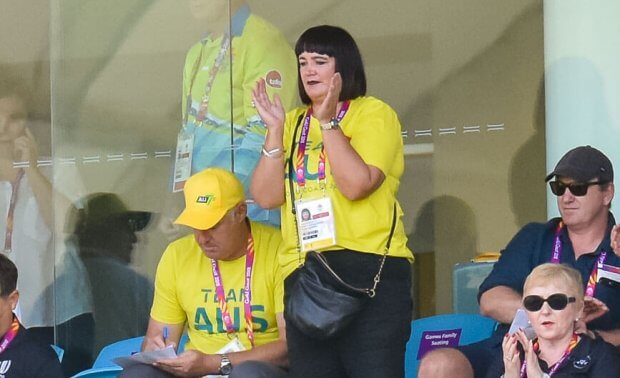At what point do you recognise that a partnership has become an abusive relationship? It’s a question Rugby Australia must have asked itself recently about its broadcast ‘partner’ for the last 25 years, Foxtel.
According to a coalition of self-interested voices led by Newscorp (65% owners of Foxtel), RA have recklessly passed on Foxtel’s offer for the next 5 years of Australian rugby broadcast rights that would price them flat for a decade. Reckless, apparently, because rugby in Australia is a hot mess being led into TV rights oblivion by a team who need to know their place, take what they’re given and be grateful for it.
The only way RA can test the value is to take those rights to market. Not only is this Governance 101, but at a time when ASIC is taking Harold Mitchell to legal task over allegedly manipulating Tennis Australia rights, there is no real choice.
So, could other rights partners really love Australian rugby more than Foxtel? Let’s look at two believed to be making eyes.
Rugby’s value to Foxtel has always been clear – when you’re flogging subscriptions, cornering the most price insensitive segments is a crucial foundation to the business. For Optus selling phone plans (subscriptions), grabbing those segments makes exactly the same sense. They either switch to your service to get the sport for ‘free’, or you take money out of your competitor customer’s pocket when they buy the access.
Optus wants to expand on the success of their Premier League football rights in doing exactly this. What they need are affordable, yet price-insensitive, fanbases that are incremental to Premier League supporters (I.e. people who are not A-League fans). Optus, say hello to Rugby and V8 Supercars.
Rugby in Australia has traditionally struggled as a mass broadcast proposition, not helped by Super Rugby’s over-expansion which has produced a bewilderingly erratic schedule of often pointless matches. Free-to-air broadcasters want dependable appointment viewing across big chunks of air-time.

From 2021, however, RA is manoeuvring to have weekly Saturday scheduling of a club game at 3pm, followed by an Australian Super team in New Zealand at 5pm, rounded off by a home Australian Super Rugby fixture at 7.30pm. Sprinkle around that Internationals, Women’s rugby, Schoolboy and Sevens and this is just the sort of programming that Channel Ten – currently devoid of a regular sporting code – needs.
Ten re-imagined cricket as a product with the Big Bash. A similar opportunity lies with rugby, but it requires a new approach in content creation and marketing. Rugby is chess versus League’s checkers and AFL is a game that has no discernible rules. Rugby needs to lean into that, not apologise for it; adopt a brazen new challenger approach that finally moves on from a golden period the current crop of fans and players weren’t even alive for. Search YouTube for Squidge Rugby and The 1014 Rugby to get a hint of what’s possible.
When it comes to evaluating any eventual rights bids, it’s not just the headline dollar figure that counts. Platform reach, access to talent, contra, and the level of commitment to promoting the code are all elements of a bidder’s value proposition.
Foxtel, with a declining viewer base behind a paywall has always been weak on the first element. Recent disasters like English cricket going all-in behind a paywall are showing RA just what they might have been missing locked away in the attic this past quarter of a century. If you support the premise of ‘you can’t be what you can’t see’ then is it any wonder rugby struggles for participation numbers? By making the sport more visible, the flow on effect will be more participants (active and spectators), resulting in a more valuable code to corporate suitors.
The recent months of RA attempting to explain to current and would-be sponsors their ‘partner’ Newscorp’s full on assault must have certainly put the last value proposition element of ‘promoting the code’ into clear focus. You could be mistaken thinking that Newscorp were in fact trying to drive down the code’s value…
Which brings us to Foxtel’s core negotiation tactic; bully the seller from going to market. With RA calling their bluff however, Foxtel and Newscorp have been left making one hell of a song and dance about a set of rights they would like us to believe are no big deal to them.
Meanwhile, Newscorp’s investor update last Friday revealed that 13 percent of Kayo’s subscribers vaporised at the end of the Rugby World Cup in November. Imagine the carnage should they lose Rugby altogether. That’s even before you get to the legion of wealthy, rusted-on, rugby fan boomers who still form the backbone of old school set-top Foxtel.
RA CEO Raelene Castle and her team have created a compelling package of content to take to market – securing Club Rugby was no mean political feat. With every scolding Newscorp article that lands they should feel assured they’re headed down the right path.


